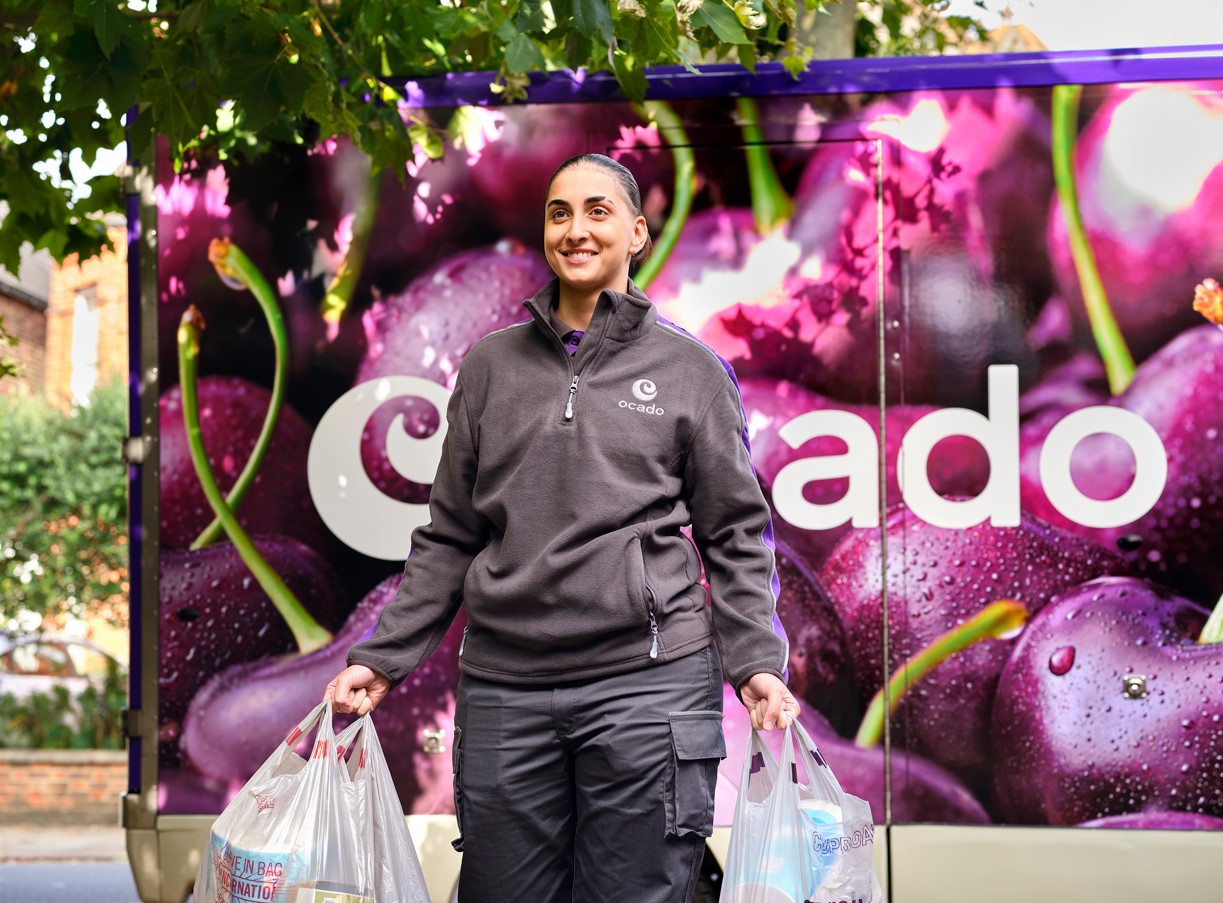Making money with online groceries? Ocado has been proving for years that it can be done. An important issue for most food retailers is that their e-commerce offering does not meet consumer expectations.
100% focus on online
For many food retailers, online is a loss-making side business, which they develop with some reluctance because they simply feel that they cannot do otherwise. However, the ‘fact’ that you cannot make money with e-commerce in food is just a persistent myth, Gregor Ulitzka, European president at Ocado Solutions, told RetailDetail: “Yes, we make money as an online supermarket. I would not have a job if it was not so. We would have been bankrupt a long time ago.”
Just last month, the group’s retail division published excellent figures: sales grew 7 % last year, operations are profitable and its online grocery market share in the United Kingdom is now 12.7 %. At RetailDetail’s Omnichannel and E-Commerce Congress, on 5 March in Antwerp, Ulitzka will reveal how this is possible.
One of the success factors is focus: “If a supermarket company with fifty billion euros turnover sells two billion online, e-commerce is only 4 % of the business. And so it only gets 4 % attention from the board, 4 % resources… You see that happening everywhere. At Ocado, 100 % of the attention and resources go to online. Just as Amazon is a technology company that decided to disrupt the book industry, Ocado is a tech player that decided to disrupt food retail.”
The ‘long tail’ in food
If traditional food retailers fail to become successful online, it is often because their online offerings do not meet shoppers’ expectations. “Offline, people go to Aldi for this and to Delhaize for that, and then to the vegan speciality shop or the local butcher… That is normal buying behaviour: no shop has everything I would want. But online retailers usually limit the range to a maximum of 10,000 SKU’s, for operational reasons. That is not a strategy.”
After all, the power of online is the ‘long tail’: “If you can offer more than 40,000 SKU’s cost-efficiently, with 99 % of items delivered as promised, in time frames of half an hour, then you have an online offer of which the customer will say: that is superb! But if you start from a supply chain designed to serve shops, and you think that you will become profitable online as well: it will not happen.”
Complex supply chain
At many retailers, the supply chain is too long and complex: products go from the central distribution centre to regional hubs, then to shop stock, then to shop shelves. “Freshness is no longer optimal by then. Five customers ahead of me have touched the tomatoes before I buy them. An optimised online supply chain goes directly from the supplier to the automated distribution centre, where products are not touched by people but by machines – which do it more safely and cleanly. You then receive them at home with a guaranteed shelf life. That is how you create value for your customers.”
It is also telling is the fact that many food retailers prefer the click & collect model, to keep costs under control. “But what if you ask consumers: do you want to get in your car to drive to the collection point to pick up your heavy groceries? The answer is pretty simple, isn’t it? Just deliver it at home. Of course, there are the labour costs. You have to manage the last mile really well. But it is possible: we are proving that in the UK. And not just in London: we serve 80 % of the British territory with seven distribution centres.”
Low loss rate
In a business like food retail, with its low margins, you really have to turn over every stone to build a profitable business model, Ulitzka knows. Every detail counts: your web page, how you handle slot management, how you optimise the last mile… “The most exciting KPI that sums up the business is the waste rate as a percentage of sales in the supply chain. 2.5 to 3.5 % is the norm in the industry. Well, we manage to run our business with a loss rate that has been as low as 0.4 %. That KPI debunks a lot of myths about online.”
As well as being a pure player in the UK, Ocado is a supplier of innovative e-commerce technology to 12 other retailers in 10 countries on four continents, including big names such as Auchan, Casino, Kroger or Morrisons. That approach works for a variety of business models: “Our partner in Sweden, market leader ICA, is a franchise organisation. Each shop has a different offer and sometimes different prices. Yet we can make online profitable for them with a centralised, scalable, automated model. We also work for Lotte in South Korea, arguably the largest and most technologically advanced market for online groceries in the world.”
How does Ocado help food retailers become profitable online? Gregor Ulitzka will explain it at the Omnichannel and E-Commerce Congress, on 5 March in Antwerp. Speakers from Amazon, Blabloom, Hybrid, Shopopop, Vaimo and Zalando will also sign up on the day. Tickets can be ordered via the link below. Don’t wait too long: the past two editions sold out well in advance!

